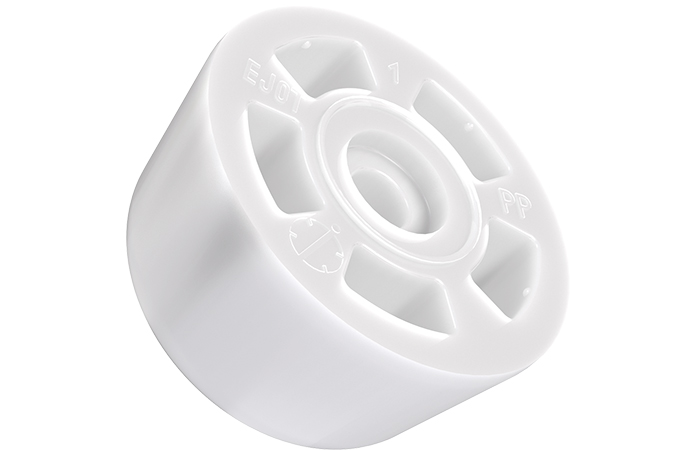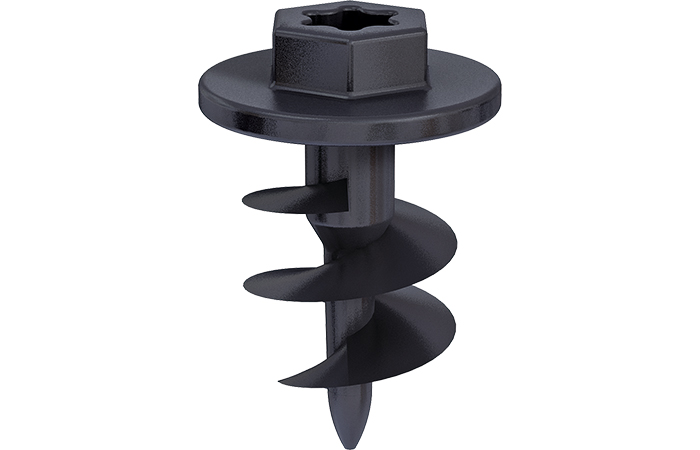
World-leading fastener specialist EJOT has developed its unique EPPsys range of fasteners for use in lightweight materials including foams - especially expanded polypropylene (EPP).
Advantages include an exceptional strength to weight ratio, durability, application versatility, optimisation for automated assembly, and recyclability.
A significant extra benefit is that the EPPsys range is fully supported by EJOT expertise, which is also available to any designer or manufacturer wishing to evaluate the potential of EPPsys products.
Fastenings for lightweight materials that are strong and reliable, yet themselves lightweight, can significantly improve product quality and assembly efficiency. Such fastenings have been elusive before EJOT introduced this innovative and ground-breaking technology, developed in response to the exacting requirements of leading manufacturers, including many in the automotive sector.
EPPsys design criteria included quality of performance, ease and speed of fixing, cost effectiveness, and ready adaptability to multiple lightweight materials and assembly processes.
EJOT EPPsys products have been extensively tested in assembly environments. As a result there is a wealth of technical data available to guide designers and manufacturers. This helps ensure a seamless integration of EPPsys products into existing automated or semi-automated assembly lines.
Steve Wynn, Sales Manager for EJOT’s UK Industrial Fastening Division is confident that the EPPsys range is a major step in opening up the design potential of lightweight materials.
‘Weight reduction is now a universal design imperative, so there’s a demand for fasteners that allow EPP foams and PP honeycombs to be used more extensively. EJOT has always been ahead of the field, so we’ve been developing EPPsys products for a long time. The performance and versatility of the product variants within the range put them in a class of their own.’
The EJOT EPPsys product group currently consists of:
EPPsys RSD
A unique fastening boss Installed by friction welding directly in to EPP foam. Friction welding - essentially using the heat generated by controlled rotation to embed the fastening element into the host material - is well established, but its use in EPP foams and such structures is an exclusive EJOT innovation.

Advantages of the EPPsys RSD include:
- No pilot hole needed.
- Very easy and process reliable creation of an attachment point in EPP foam.
- Suitability for almost all EPP foam densities.
- High torque levels and pull-out loads.
- Assembly independent of any component tolerances.
- Optimal screw boss for use with the EJOT DELTA PT screw.
- Fast and clean installation.
- Weight savings.
EPPsys D
For direct assembly into foamed products for cost savings and greater design freedom. It performs best with EPP but is also effective with other foams.

- The EPPsys D does not need a pilot hole, which eliminates hole overlap problems.
- It has high process reliability owing to the large margin between installation and stripping torque.
- It has high axial load capacity when fastened.
- The plastic material used in its construction delivers significant weight savings.
- All forms of assembly - manual, semi-automatic and fully automatic - are possible.
Typical applications include fastening add-on parts to vehicle bumpers, fastening vehicle crash pads and EPP boxes (for example for securing a box for an in-car first aid kit), and fastening or attaching components to insulation materials within a wide range of products.
EPPsys DR
The EPPsys DR is effectively the EPPsys D with a snap-fit alternative for component attachment. Two engagement hooks enable the easy attachment of thin-walled components.

It gives all the advantages of the EPPsys D plus:
- Easy attachment of EPP components to thin-walled components.
- Easy and secure snap-fitting of the mounted parts.
- A large clamping thickness range.
- Axial tolerance compensation within the clamping thickness range.
- Radial tolerance compensation.
EJOT has a team of experienced Application Engineers servicing all areas of the UK. They support design engineering projects locally and through its global network of technical support facilities.
https://www.ejot.co.uk/indsutrial-lightweight-fastening-tssd-eppsys










Radio wave weapon knocks out drone swarms
Probably. A radio-controlled drone cannot be completely shielded to RF, else you´d lose the ability to control it. The fibre optical cable removes...